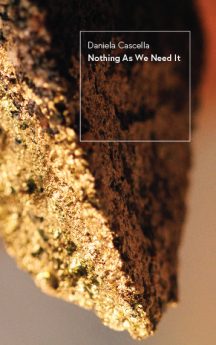Imprint Directors: Ansgar Allen, University of Sheffield (a.allen@sheffield.ac.uk) and Emile Bojesen, University of Winchester (Emile.Bojesen@winchester.ac.uk)

“It is an ill bird that fouls its nest.”
Although the origins of this ancient proverb remain unknown, the Hoopoe is commonly taken as its muse. As such, the maxim represents a distortion of Hoopoe behaviour. Though the bird is notoriously stinky, it is not ill, nor does it foul the nest strictly speaking. To deter predators the bird emits a secretion from its preening gland, specially adapted for the duration of nesting to give off the smell of rotting meat. Hoopoe nestlings, however, are able to emit streams of faeces at intruders. Another possible origin is in myth. The Hoopoe makes an appearance in the bible as a bird too dirty to eat, but also in an Arabic story, where the mother Hoopoe is buried in the head of its offspring in a display of filial piety. The nest-fouling bird is now dead, dirtying its progeny from the grave.
~ J. Kunstman, “The Bird that Fouls the Nest,” in Essays on the Proverb
Risking Education seeks to disturb the complacency of education, educators, and educated people. It takes aim at the pieties of education and the conceit of the educated, suspecting that these positions are upheld by little more than habit, false promise, and the fantasy of intellectual fulfillment.
Risking Education argues that a genuine critique of education is necessarily self-defeating. It takes direction from the example of Diogenes, who concluded a widely regarded oration by squatting before his audience. Having mastered the art of rhetoric, which was the hallmark of the educated in their claim to overcome all that is slovenly and untidy in the person who speaks, Diogenes betrays that achievement at the last moment. In adjusted form this mode of critique can be found in more recent figures such as Thomas Bernhard, famously dismissed by his fellow Austrians for being a Nestbeschmutzer (one who fouls the nest). The irony of Bernhard’s work is that none comes off worse than the puffed up, obsessive, supercilious narrator.
We publish books that attempt, explore, and question a logic of attack that endangers the educated critic. This is based upon a suspicion that that the critic is just as susceptible to the moral, logical, and political illnesses identified in others. We suggest that there is no alternative available to the cultural critic but to foul the nest, knowingly or otherwise. Books published by Risking Education testify to this collective cultural malady. Our authors are ill with education and would like to tell the world about it.
Form
We publish books that hit the 30,000 word mark, longer than the academic paper but shorter than the academic monograph. Each book takes on a theme addressing the condition of education and educated people. Themes will be relevant insofar as a critique of, or by way of them, is prepared to risk education. Such critique helps perturb and open to questioning our underpinning faith in education, educated being, and educated intercourse. Books published by Risking Education play with the conventions of academic scholarship whilst remaining rigorously scholarly.
Risking Education is intended for a broad audience and assumes no prior specialist knowledge. Books published under this imprint are not driven by a mission of accessibility interpreted as the desire to convey complex thought to the uninitiated. Rather, they tend in the opposite direction, seeking to question the various promises – of improvement, of prosperity, and of redemption – that the initiated make to themselves, to those they seek to attract, and to those whose silent consent they nonetheless require.
Scope
This imprint has no disciplinary home, though it is likely to fall at the intersections of philosophy, literary theory, and educational studies. It provides a different kind of response to the widely discussed crisis of education, suggesting that this crisis is of its own making. Forever reaching beyond itself, education promises what it cannot deliver whilst delivering what it would never openly promise. Given this level of deception, the end of education might be welcomed as much as it is feared. But the end of education is just as duplicitous. Like the associated notion of ‘an educated public’, education ‘is a ghost that cannot be excised’ (A. MacIntyre, ‘The idea of an educated public’). In short, only those who are already conditioned by the idea of education, those with a taste for such falseness, can fear its end. The end of education is a product, an extension, of education itself. As a belief system, education remains fundamentally undisturbed by its own announced crisis.
Calling on all nest foulers, this imprint attempts a different approach to the critique of education. Claiming that there is still too much of the sacred in education, Risking Education invites authors and readers to explore what purposes might be served by a little educational sacrilege.
If you would like to submit a book proposal, please email a.allen@sheffield.ac.uk or emile.bojesen@winchester.ac.uk.
We would be grateful if prospective authors could send the following to both editors:
- A 500-1000-word description of the proposed 30,000-word book.
- An additional 250 words on each chapter.
- A 300-word description of how it fits with the series.
- A sample of writing: either a section of the prospective book or from elsewhere.
However, we are also open to other modes of approach and proposal formats if considered more appropriate by the prospective author(s).
Editorial Board
Muna Abdi (Sheffield Hallam University, UK)
David Blacker (University of Delaware, US)
Matthew Charles (University of Westminster, UK)
Lindsay Miller (University of Sheffield, UK)
Marika Rose (University of Winchester, UK)
Darren Webb (University of Sheffield, UK)

